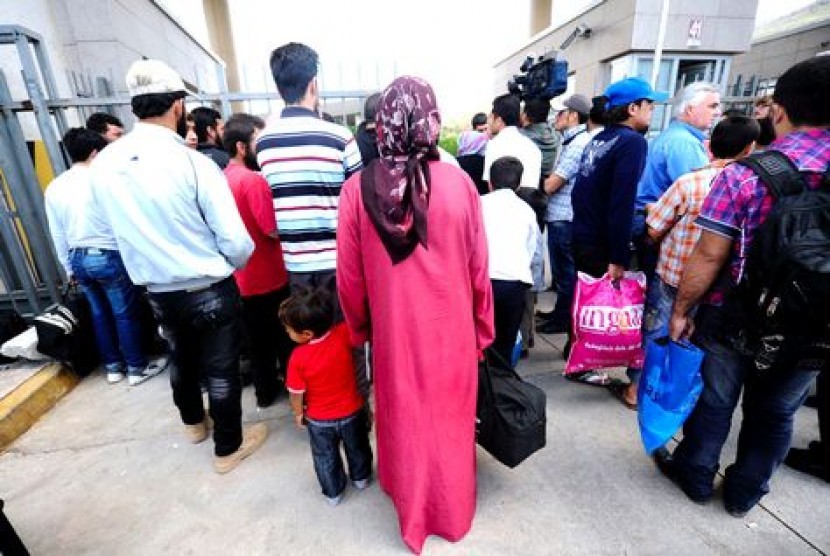REPUBLIKA.CO.ID, LJUBLJANA -- Information shows that a safe, warm and quick refugee transit is guaranteed in Slovenia despite the weather becomes cold and snowfall on Saturday.
Some 5,300 migrants arrived at the border crossing of Dobova on board five trains from Croatia on Friday, which brings the number of migrants having entered Slovenia since mid-October to more than 245,000, according to local official media reports.
Slovenian police at Novo mesto reported on Saturday that another train, which the Croatian police said is carrying 874 refugees, was expected to arrive at Dobova, the main entry point from Croatia, Saturday morning.
In line with an agreement with Austria, the Slovenian police started sending migrants to Austria also through the Karavanke tunnel in the north-west of the country.
Slovenian Kranj regional police stated that slightly more than 400 migrants in eight buses were taken to Austria via the tunnel on early Saturday morning.
The bus transport is designed to take the pressure off the Austrian border crossing of Spielfeld (Sentilj on the Slovenian side), which is the busiest in terms of refugee numbers, according to Slovenian Press Agency (STA).
There were almost 2,100 migrants at the accommodation center in Sentilj last evening, with almost 1,120 arriving during the night, according to Slovenian Maribor regional police.
The Gornja Radgona border crossing in the north-east remains another exit point with Austria.
Despite the bad weather, transport of migrants from the border to accommodation center inland is proceeding as usual, Novo mesto police said.
This has been confirmed by Borut Simoncic of the Slovenian Civil Protection Force from the Posavje region on the border with Croatia.
"Regardless of the weather, there are no problems in processing refugees. The tents have heating and all services are on the ground," the official was quoted as saying by the STA.
While the country has the capacity to accommodate around 9,400 migrants in heated centers, NGOs in Slovenia say they are prepared for colder weather.
According to Jana Lampe of Slovenian Caritas, they have enough blankets as well as winter clothes and shoes. "We'll try to make sure that refugees are not exposed to the cold and that they get warm drinks such as tea," she said.
Lampe believes the heated tents would suffice if temperatures remained above zero, but if it got colder, accommodation in buildings would be a better option.
Peer organizations from abroad are also sending aid. Red Cross Slovenia has meanwhile collected 60 tonnes of clothes and 45 tonnes of food, the STA report counted.


